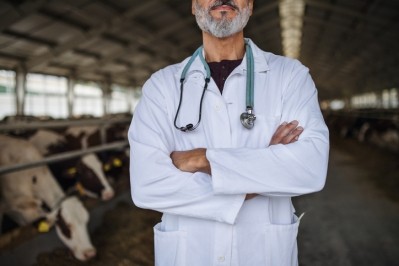Future proofing feed: Call for more supportive EU legislative framework for feed additive innovation

A panel discussion, as part of the trade body’s Future Proofing Feed event, acknowledged the role feed additives can play in terms of reducing the environmental emissions generated by farmed animal production but also in respect of boosted animal health and welfare, thus lowering the need for antimicrobials.
The speakers included Eva Zamora, head of unit for animal nutrition and veterinary medicines under DG for Health at the EU Commission, Séverine Deschandelliers, FEFANA president, Dirk Ehle, board member of Animal Health Europe, and Reinder Sijtsma, chair of FEFAC´s premix and mineral feed committee.
The panelists stressed the importance of stimulating innovation in feed additive development through private/public and multidisciplinary partnerships, and the gains implicit from knowledge transfer from other sectors like human health.
The participants also agreed that an efficient legal framework for feed additives enabling an environment where there was less administrative burden, better market protection for feed additive applicants, new recognized functionality of those products in terms of welfare and environmental protection, and regulation that allows companies to communicate the scientifically proven effects of additives to end users would spur greater innovation in that regard.
A second panel discussion, featuring Michael Scannell, deputy director general, DG AGRI, Pekka Pesonen, secretary-general, Copa-Cogeca, Régis Fournier, president of Euroseeds and Asbjørn Børsting, FEFAC president, examined CAP revisions, elements like voluntary coupled support, eco-schemes, and rural development investment programs that could help boost protein production in the EU and reduce the EU dependency on imported protein rich feed materials.
New plant breeding techniques
The experts also emphasized that new technology was key for the EU farming sector to remain competitive as well as sustainable, referencing recent developments related to EU legislative around new genomic techniques (NGTs).
Such plant breeding technology could help accelerate EU protein self-sufficiency and reduce the footprint of feed production as well, they argued, with the speakers urging EU legislators to swiftly introduce a favorable regulatory framework that would allow industry and farmers to use such plant breeding technology, following public consultations and impact assessments.
The EU must not isolate itself internationally in this respect given the more favorable environment for innovation leveraging NGTs elsewhere, they stressed.
Sourcing raw materials
The DG AGRI representative emphasized that feed manufacturers would be also well-advised to promote sustainable sourcing practices and traceability of feed materials to meet ever more forceful retailer and consumer demands on those parameters.
Scannell noted new EU planned initiatives: the upcoming voluntary Code of Conduct for Responsible Business and Marketing Practices in the food chain and mandatory due diligence measures, with a key focus on deforestation-free supply chains.
Børsting said FEFAC's recently revamped Soy Sourcing Guidelines (SSGs) now include the possibility for verification and certification program to be benchmarked on ‘conversion-free’ soy, and this initiative should help facilitate the transition to a more sustainable supply chain.








